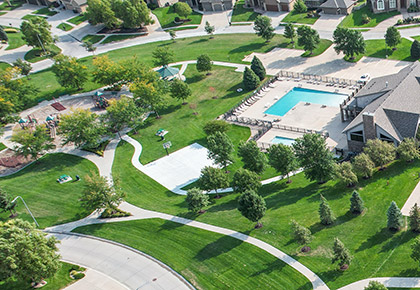Narrow Results
-
HOA Parking Rules: 6 Questions to Assess Your Policy
How can you ensure that your association’s parking rules are fair and easy to understand and follow? Here are 6 essential questions to ask before you create or enforce parking policies. -

A guide to Georgia HOA bylaws: Everything you need to know
Learn how to amend your association bylaws, including the practical logistics required to do so. -
Depreciation Reports: What You Need to Know
A depreciation report provides an inventory of your Strata Corporation’s common property and assets, their projected 30-year maintenance and replacement cost. It is a useful tool for Strata Councils when it comes to budgeting for capital projects and it also gives transparency for owners and buyers on the building. -
Tips for creating a no-smoking policy in your apartment or high-rise building
The dangers of smoking and secondhand smoke are well known, and tobacco use is now the leading cause of disease and preventable death in the United States. But smoking doesn’t just impact our personal health – it also affects the buildings we live in, potentially increasing the risks of fire and property damage, raising insurance costs, increasing legal liability and more. In addition, property management companies, condominium associations and property owners often field complaints from homeowners about how smoking doesn’t just affect their health and safety, but also their lifestyle – issues like secondhand smoke drifting into their units, increased litter and fire hazards from discarded cigarette butts, smelly and unsightly ashtrays ruining the aesthetics of common areas, and more. -
Here's What to Know About Conducting an HOA Reserve Study
If you are a high-rise Board member, resident or property owner looking for the peace of mind that insurance provides, make sure you have the correct coverage. Follow our guidelines! -
A board member's guide to managing an HOA pool
Many people want to live in a community that has a swimming pool, and if there’s one in yours, you know what kind of value it brings. While it’s great to think of all those hot days when you and your neighbors can enjoy an afternoon in the water, with it comes many responsibilities community association board members must adhere to that go beyond staying cool or keeping in shape. -

Minnesota squatters' rights: A 2025 guide
In this guide, we’ll break down how Minnesota squatters’ rights work, what steps you can take to protect your property, and how a Minnesota property management company like FirstService Residential can help you safeguard your investment. -
How Can My Association Fund Capital Improvements?
Nothing lasts forever…and when it comes time to replace your high-rise roof, community pool or to add new amenities, your association will need to determine how to pay for it. All of these things – significant repairs and replacements, as well as new construction – are considered capital improvements. -
Board Meetings: 5 Rules to Live By
The greatest strength of your board is the diverse perspectives of its members, but this can also present the biggest challenges. Creating the right dynamics will help your association board conduct business smoothly and efficiently. -
Six Important Things You Need to Know as a New Board Member
Some owners are reluctant to volunteer to be a condominium board member because they’ve never done it before. That’s why we developed these six essential tips for new board members to help them get up-to-speed quickly. If you consider these points as you get down to condo business, you will be successful in your new role ─ one in which you really can make a difference. -

Requirements for HOA board members: Becoming a board member
Homeowners' associations (HOAs) play a crucial role in maintaining and enhancing the quality of life within a community. One of the pivotal positions within an HOA is that of a board member. Serving on an HOA board comes with responsibilities, challenges, and opportunities to make a positive impact in the community. -

HOA collections: A guide for boards and residents
As an elected board member, you have certain duties and obligations to the homeowners in your community. One of the most important of these is your commitment to protecting the financial health of the homeowners association (HOA). After all, the entire community depends on you to manage its money and keep its operations running smoothly. -

How much does property management cost?
In this article, we delve into the world of community association management fees, addressing common questions such as how much property management companies charge, the average property management fee, the tax implications of HOA fees as well as the value of hiring a professional management company. -

5 common HOA problems & board mistakes to avoid
We’ve highlighted four common board blunders and included some practical tips for avoiding them. It’s important to identify these potential blunders early to save yourself and your board time and frustration. -

Avoiding Community Conflict: Best HOA Practices for Dispute Resolution
How do you prevent conflict, avoid costly litigation and maintain a great resident experience in your community? Start by adopting these best practices for dispute resolution. -
Is HOA Agreement a Unicorn? 3 Boards Share What It Takes
While maintenance, events, committees, and budget are all crucial aspects of managing a homeowners’ association, there's one even bigger challenge that board members face: HOA agreement and alignment. Read on to discover the secret to successful alignment among diverse individuals with distinct values. -
Choosing the Right Community Management Company to Manage Amenities
A big part of what sets your community apart is the amenities it offers. This goes beyond a pool, a fitness area or a place for a rooftop party – your amenities help create a lifestyle, and that’s the most important thing to residents and association members. -
Before Creating a New HOA Policy, Ask These 5 Questions
Great policies can help your association run smoothly, enhance the resident experience and improve your reputation. Here are five questions to ask before creating a new HOA policy. -
Four steps to creating a no-smoking building policy
We have all heard about the harmful effects of smoking and secondhand smoke exposure. Arizona law addresses the dangers of secondhand smoke through its Smoke-Free Arizona Act. The Act prohibits smoking in enclosed public buildings and workplaces, as well as in enclosed, common areas of multifamily buildings. -
Don’t Be the HOA Bad Guy: 4 Proven Policy Enforcement Tips
Enforcing HOA policies is nobody’s cup of tea, but having good policy enforcement in place helps improve the resident experience and elevates your reputation. Follow these 4 principles for healthy policy enforcement: -

Reserve Funds: HOA Budgeting Tips to Improve Your Returns
Are you getting the best returns on your reserve funds? Most Arizona board members aren't sure. Find out six ways to improve your association's reserve fund returns, like creating an HOA investment policy. -
How to Select the Right Community Management Company
If you’re a board member of a Phoenix HOA, or any Arizona community for that matter, you’re used to facing challenges. But oftentimes, these challenges can become overwhelming. That’s why many master-planned and condo communities look to professional community management companies for help. -
Is Your Association Manager Equipped for Success? 3 Questions to Ask
Does your association manager have the right tools, resources and support to take your association to the next level? -
Seven Tips for Choosing the Right Reserve Study Firm
Your reserve fund is an important way for your homeowners association (HOA) to plan and budget for the future. It gives you the financial ability to maintain the quality of your community by funding necessary—and expensive—projects. Rather than covering day-to-day maintenance expenses, a reserve fund is intended to be used for major expenses like roofing, paving and capital improvements (for example, new construction or remodeling).